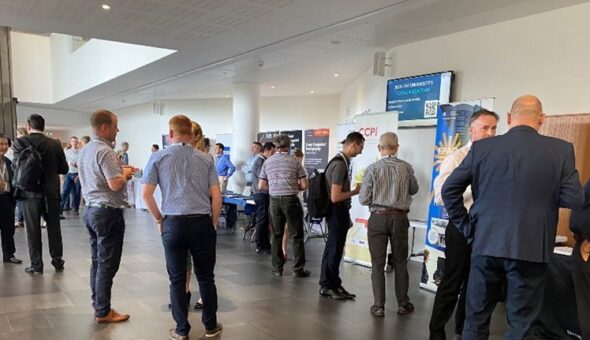For International Women's Day 2024, we're celebrating how our research is improving the lives of women worldwide. Minu Bahrami, PhD researcher in mechanical engineering and our Centre for Bioengineering & Biomedical Technologies writes about her research into heart failure in women.
I am a first-year PhD student working on a project aiming to better the treatment of female patients suffering from heart failure.
It's estimated that over a million people in the UK suffer from heart failure, with over 100,000 admitted to hospital each year and 10,000 deaths. In 2017, heart failure impacted a global population of 64.3 million, with 29.5 million being male and 34.8 million female. For patients suffering from end-stage heart failure, the only hope of long-term survival is a heart transplant. However, donor hearts are scarce, and not available for all who need them, resulting in fewer than 200 heart transplants a year in the UK. Alternative treatments are urgently needed to keep patients alive until a donor heart can be found. One alternative is a Total Artificial Heart (TAH): a machine to completely replace the native heart.
Support and empowerment
Scandinavian Real Heart AB, a company based in Sweden, has developed a TAH with a completely novel pumping concept based on displacement of a piston and valve. However, the size of the current TAH makes it suitable only for large patients. To enable smaller patients including women and smaller adults to benefit, the company are scaling down the Realheart TAH. But reducing the volume may require increased pumping frequency with the potential to increase damaging fluid stresses on the blood.
Our project aims to investigate the impact of reducing the size of the TAH on blood damage. Extensive computational fluid dynamics (CFD) is used along with numerical modelling of haemolysis (damage to the red blood cells) and the creation of a numerical model for thrombosis (blood clotting). Computational results are validated by comparison with experimental results from collaborators at Linköping University and KTH Royal Institute of Technology.
Positive change and challenges
Our research will provide Scandinavian Real Heart with vital information about blood flow within different iterations of the design, which will assist with design improvement and decisions on best operating conditions. Our research will be invaluable in helping the product gain regulatory approval and be adopted into the clinic. In this way we are assisting Scandinavian Real Heart AB to optimise their TAH for women: a step towards medical inclusivity, ensuring that women too can benefit from this cutting-edge technology in the treatment of end-stage heart failure.
Respond
